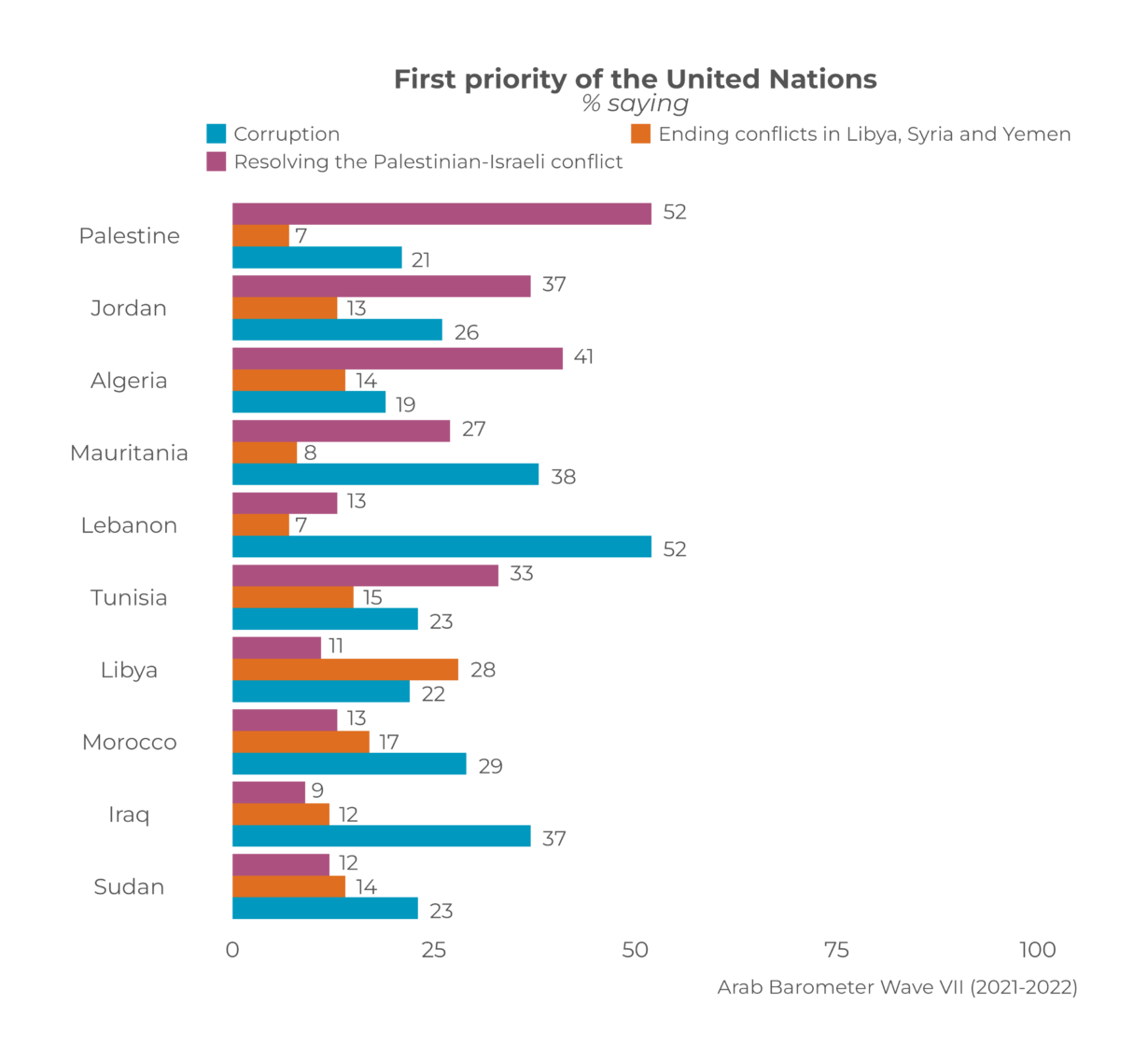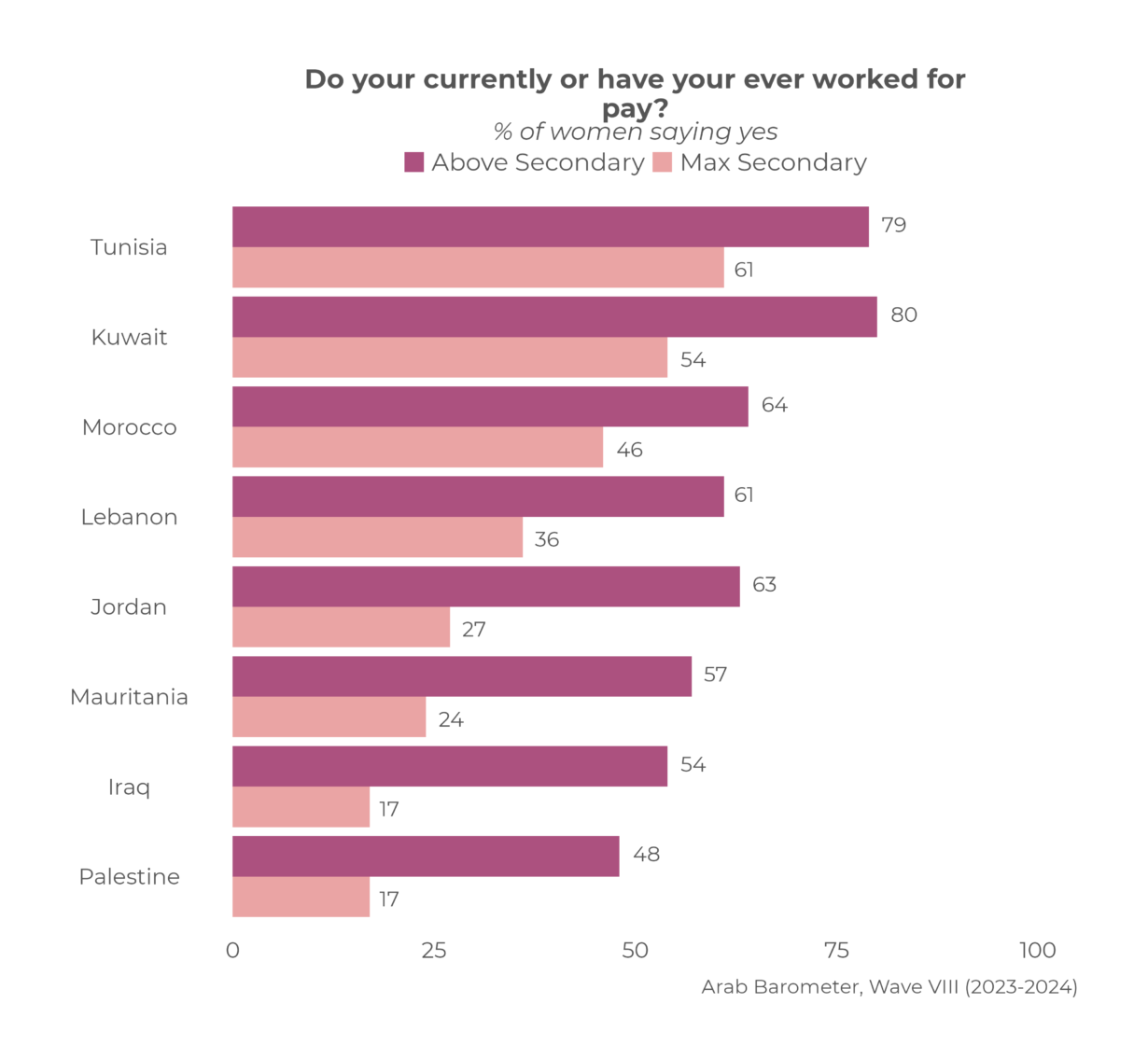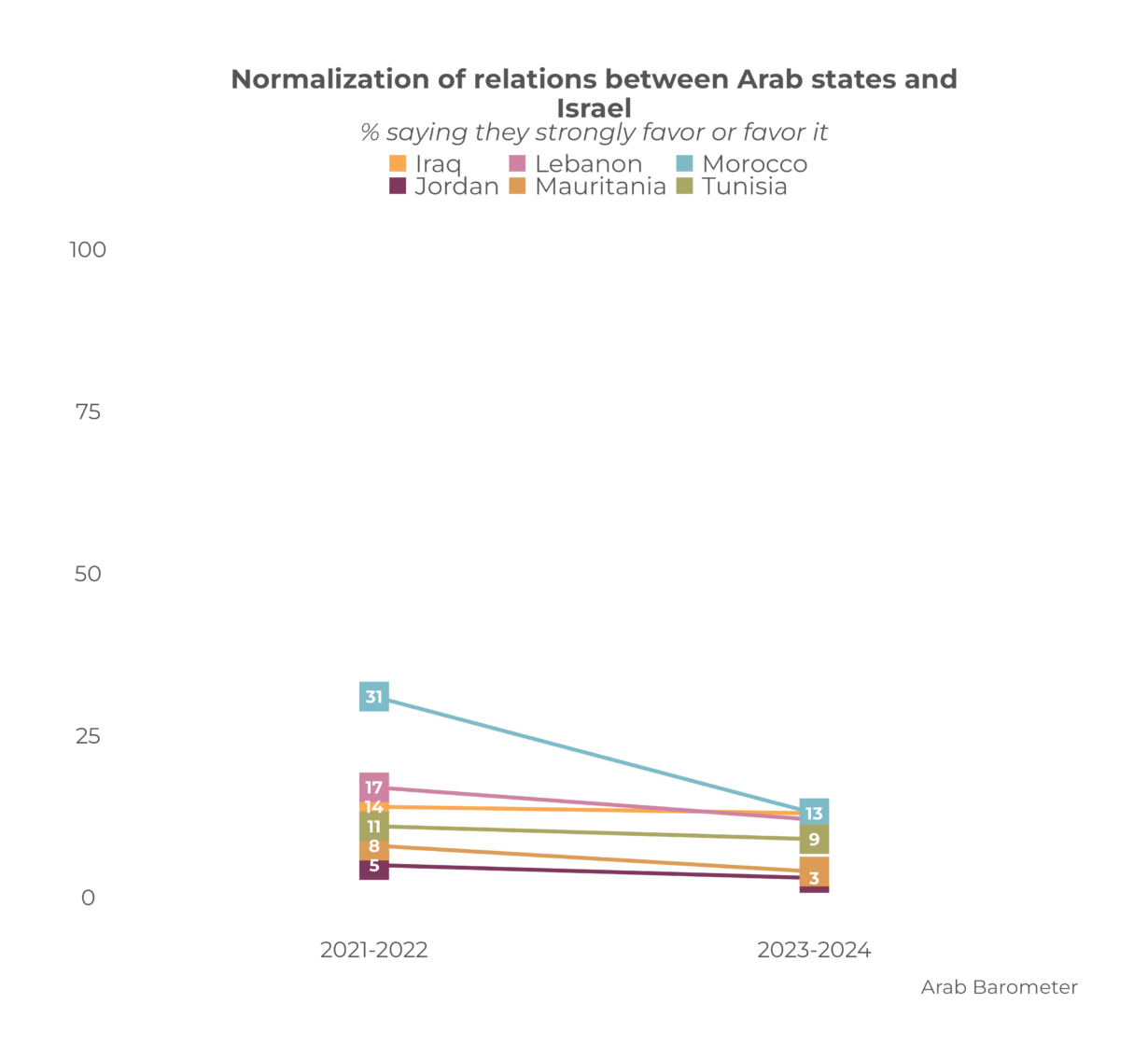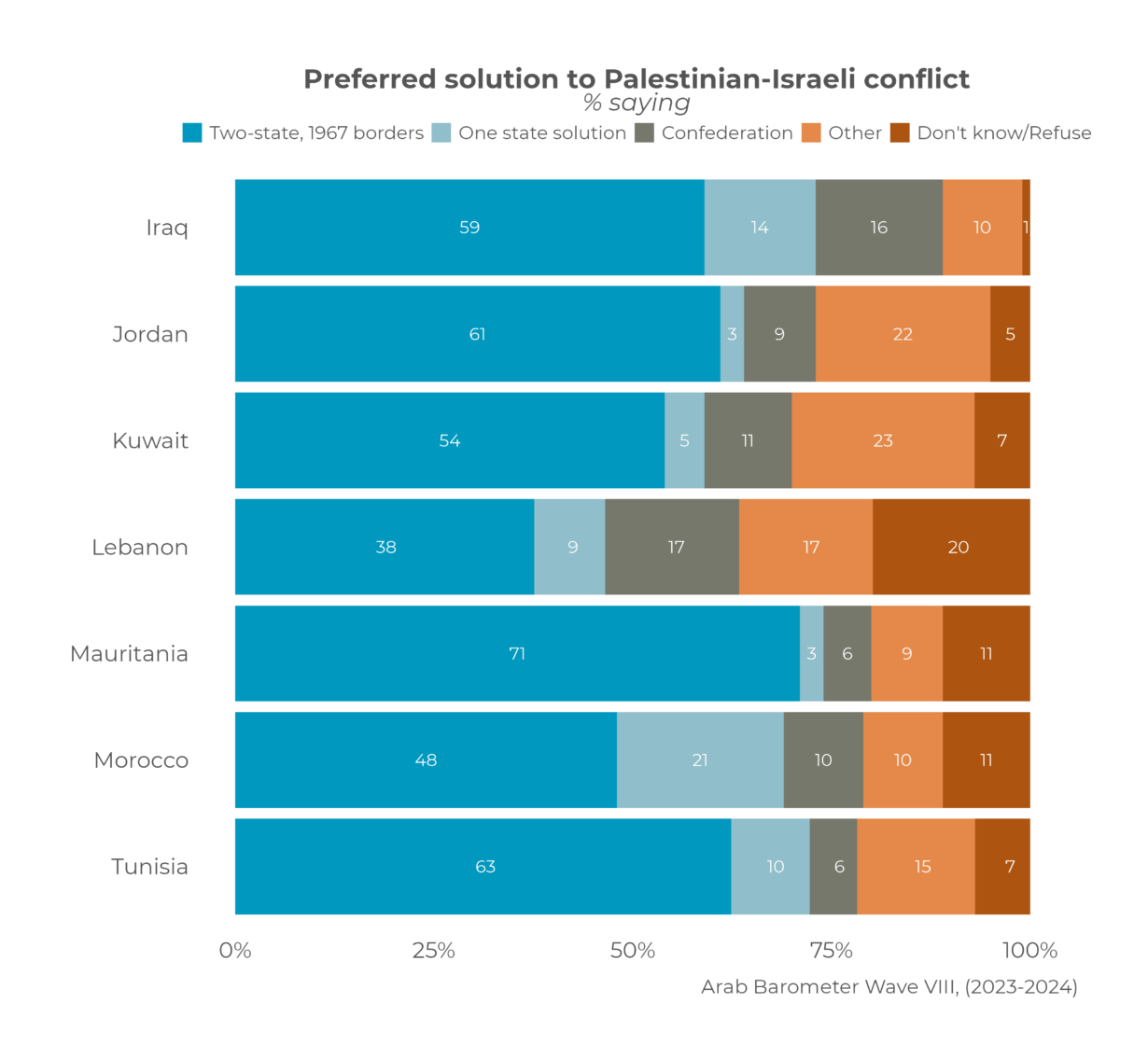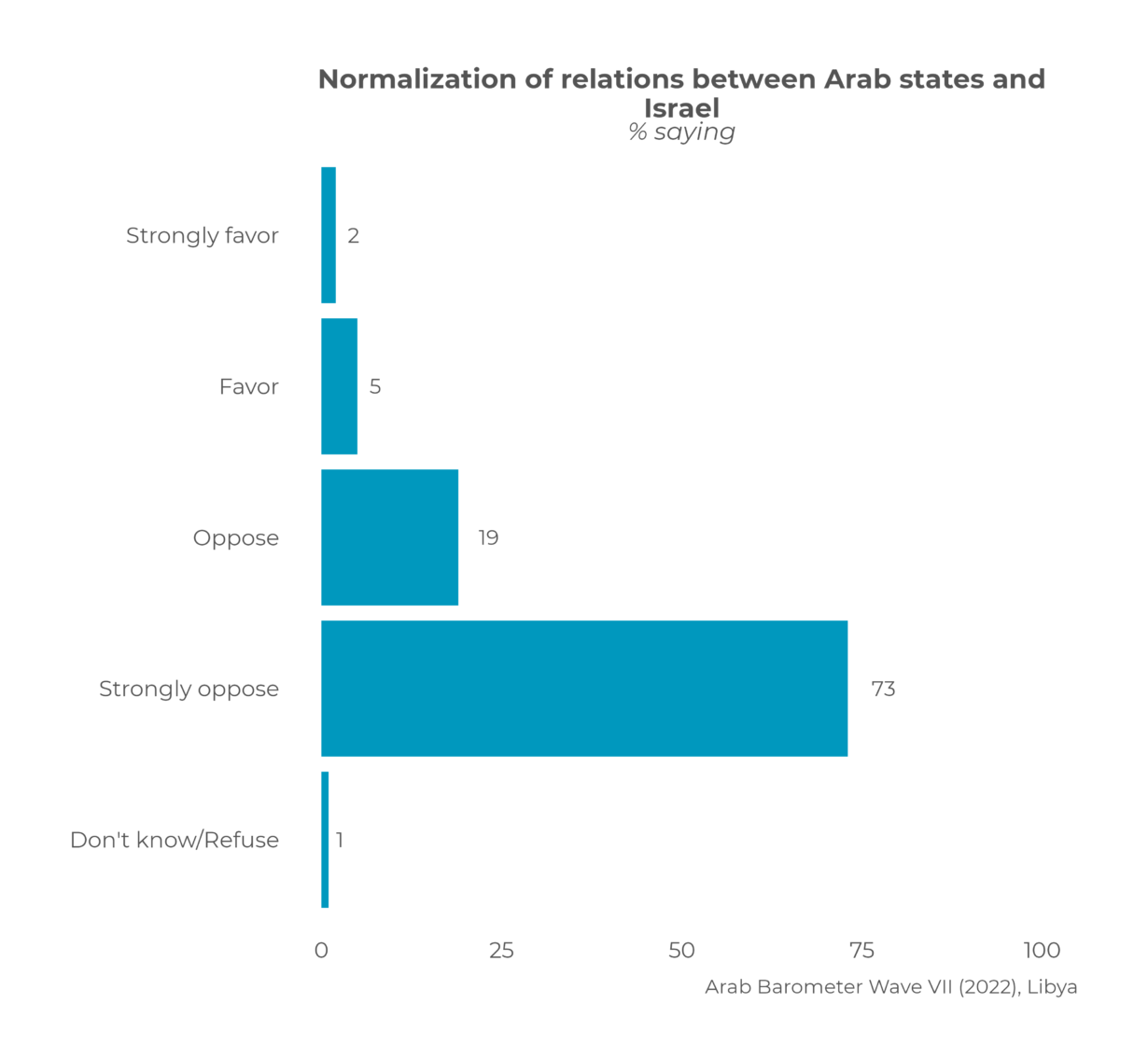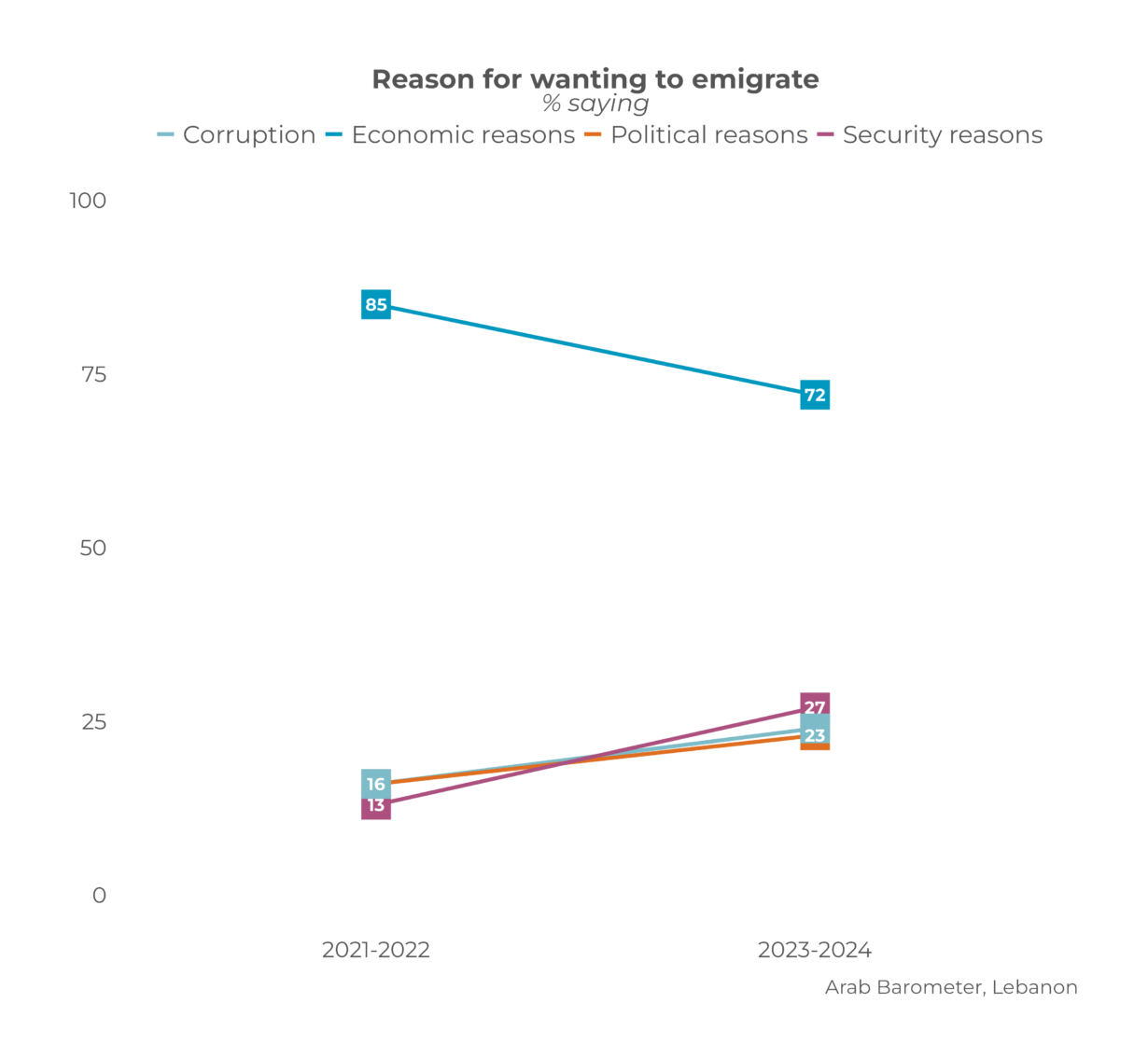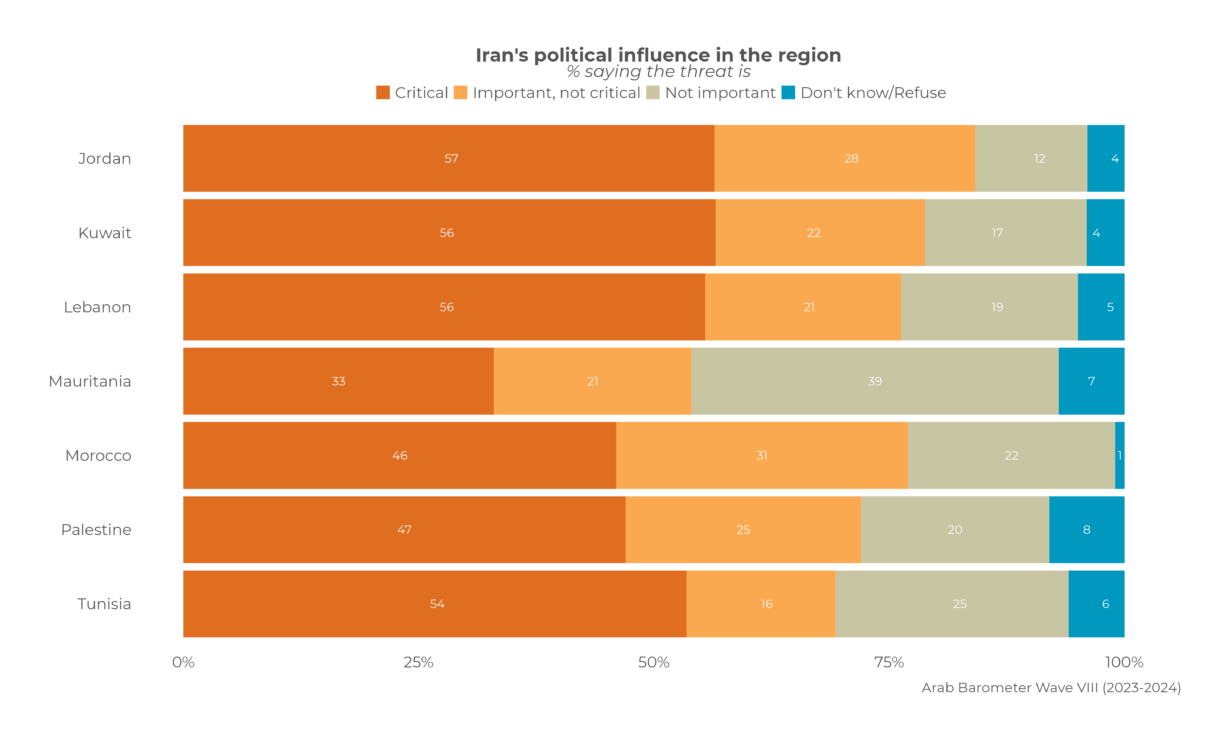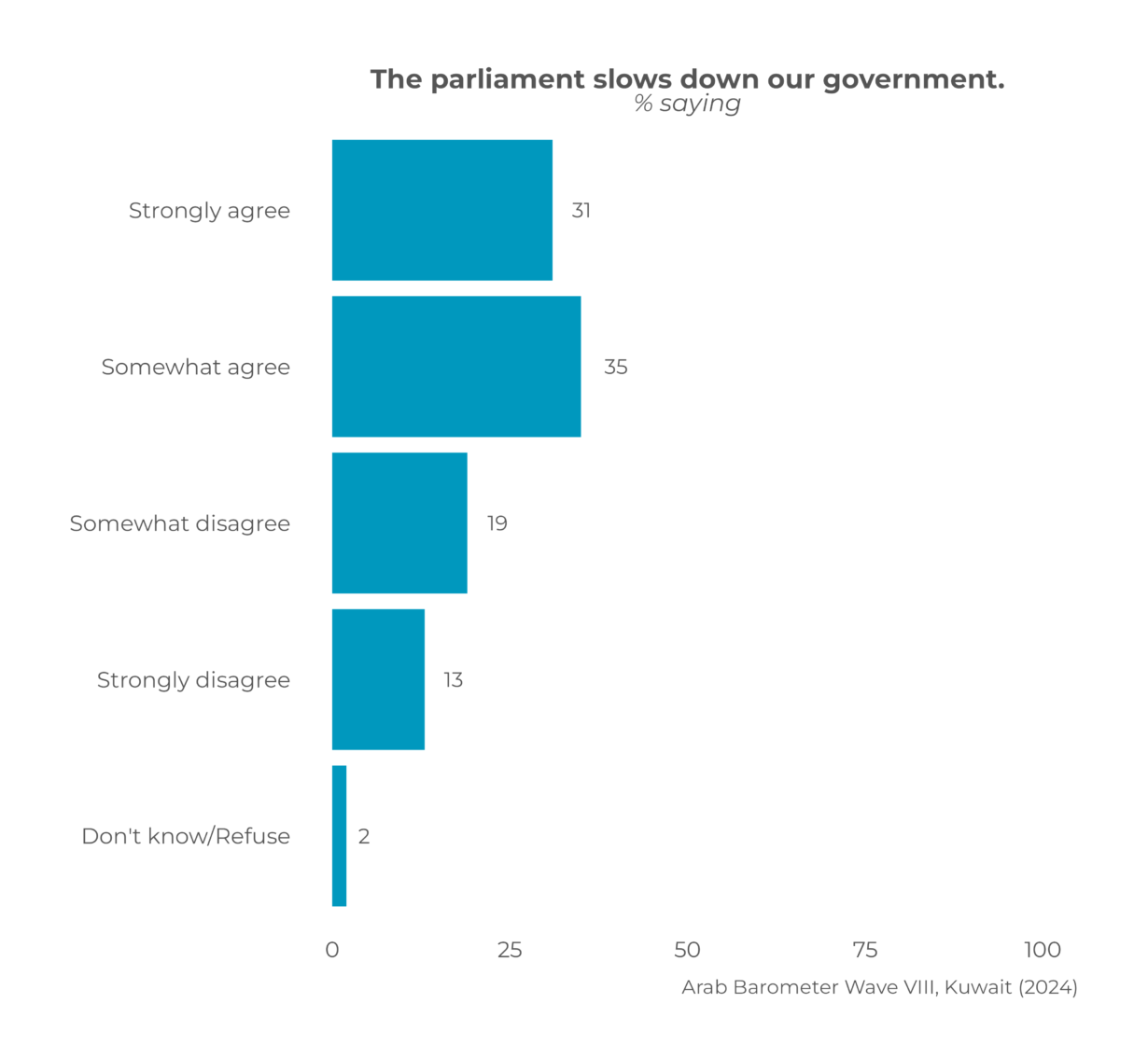What drives individuals in the Middle East and North Africa (MENA) region to pursue self-employment: internal or external personal attributes? How do these factors vary across different countries and economic contexts? This blog presents evidence from a two-level logistic estimation encompassing 12 countries from the MENA region and using data from waves six and seven of the World Values Survey…
Arab Views on the United Nations: Navigating Conflict, Corruption, and Credibility
The United Nations (UN) plays a critical role in addressing international conflicts, particularly in the Arab world. Yet, perceptions of the organization differ widely across the region, influenced by each country’s unique experiences and priorities. Using the findings from the Arab Barometer Wave VII (2021-2022) survey, this blog explores which Arab publics hold favorable views of the UN, what they…
Trump’s Aid Cuts Sever Stalwart of U.S. Soft Power in the Middle East
The new administration’s decision risks further damaging America’s reputation in the region. Amid the whirlwind of executive orders and major policy shifts coming out of the White House, President Donald Trump’s decision to freeze the operations of the U.S. Agency for International Development (USAID), which administers most U.S. foreign assistance, threatens to have a wide impact around the world. If…
Education and Working Women in MENA
Education May Not Be Sufficient, But It Is Necessary The gender gap in workforce participation across the Middle East and North Africa is among the largest of any region in the world. In the latest Arab Barometer survey, the average difference between men and women reporting to have ever held a job is over 38 percentage points. This difference increases…
The Authoritarian Impact: Does Political Mitigation Really Matter to Egyptians?
Since Egypt promoted sustainable development and industrialization as part of the 2030 Agenda and combined this vision with the ambitious plan for megaprojects aimed at reviving Egypt’s role in the international and regional space, both economically and diplomatically, a series of structural reforms have accompanied the ecology of economic policy. The conditions imposed by the IMF to provide Egypt with…
Does Civic Participation Through Development Support Institutional Mitigation in Egypt?
Since 2023, Egypt has re-established institutional relations with civil society, both to regain trust at home and to prove to the international community that it has endeavored to moderate its political approach after years of repressive policies that have paralyzed the fabric of society. However, this political decision was taken against the backdrop of an economic crisis that continues to…
MENA Publics and the Future of Normalization with Israel
In 2020, the Trump administration secured normalization agreements between Israel and four Arab countries – Bahrain, Morocco, Sudan, and the United Arab Emirates – marking a significant shift in regional relations and sparking a public discussion across the Middle East and North Africa (MENA). The deals were complex, not only secured peace with Israel but included changes in U.S. policy that…
How the Gaza War is Shaping MENA Public’s Support for the Two-State Solution
The War in Gaza has had dramatic effects on views of publics across the Middle East and North Africa (MENA), as Arab Barometer findings have revealed. Unsurprisingly, views of how the Palestinian-Israeli conflict should be resolved have also been affected. Given the images coming out of Gaza, it might be expected that views toward the peace process would have hardened…
Libya’s Former Foreign Minister’s Interview Reignites Public Outcry Over Normalization
Najla El Mangoush, the former Foreign Minister of Libya, appeared in her first media interview since her dismissal from her post in August 2023. The minister was suspended by the prime minister of the Government of National Unity (GNU) following leaks regarding her meeting with the former Israeli foreign minister. The meeting took place in Rome, Italy in mid August…
Lebanon Migration Insights: 2024 Public Opinion Factsheet
In the eighth wave of Arab Barometer, we interviewed 2,400 Lebanese citizens between February and April 2024 to help shed light on their migration preferences. This survey provides a snapshot of how current economic, political, and security challenges—including the escalating tensions between Israel and Hezbollah—are shaping these migration aspirations. About AB Wave VIII Survey This factsheet highlights key findings from…
Iran’s position on Palestine is not enough to win the favor of MENA citizens
During his speech to U.S. Congress in late July, Israeli Prime Minister Benjamin Netanyahu’s comments conflating support for Palestine with blind allegiance to Iran were not just factually unsubstantiated. They were also built on a faulty and falsifiable assumption: that the convergence of stances on Palestine automatically implied a causal relationship between the actions of citizens protesters on the one…
Kuwait’s Suspended Parliament: Where Does the Public Stand?
In a televised address on May 10, Kuwait’s Emir, Sheikh Mishal Al-Ahmad Al-Jaber Al-Sabah, firmly stated, “I will not let democracy be exploited to destroy the state.” This address came as he dissolved the National Assembly for the second time in three months and enacted temporary suspensions of specific constitutional provisions for up to four years. Subsequently, the Emir sanctioned…
Topics
- Charity2
- Corruption114
- COVID-1969
- Democracy36
- Discrimination14
- Economy227
- Education52
- Environment37
- Extremism19
- Freedoms51
- Gender Issues160
- Governance254
- Health45
- International Relations195
- Labor Market36
- Media31
- Migration64
- Political Institutions214
- Political Participation34
- Political Systems61
- Refugees6
- Religion118
- Security33
- Social Justice44
- Wellbeing2
- Youth75

